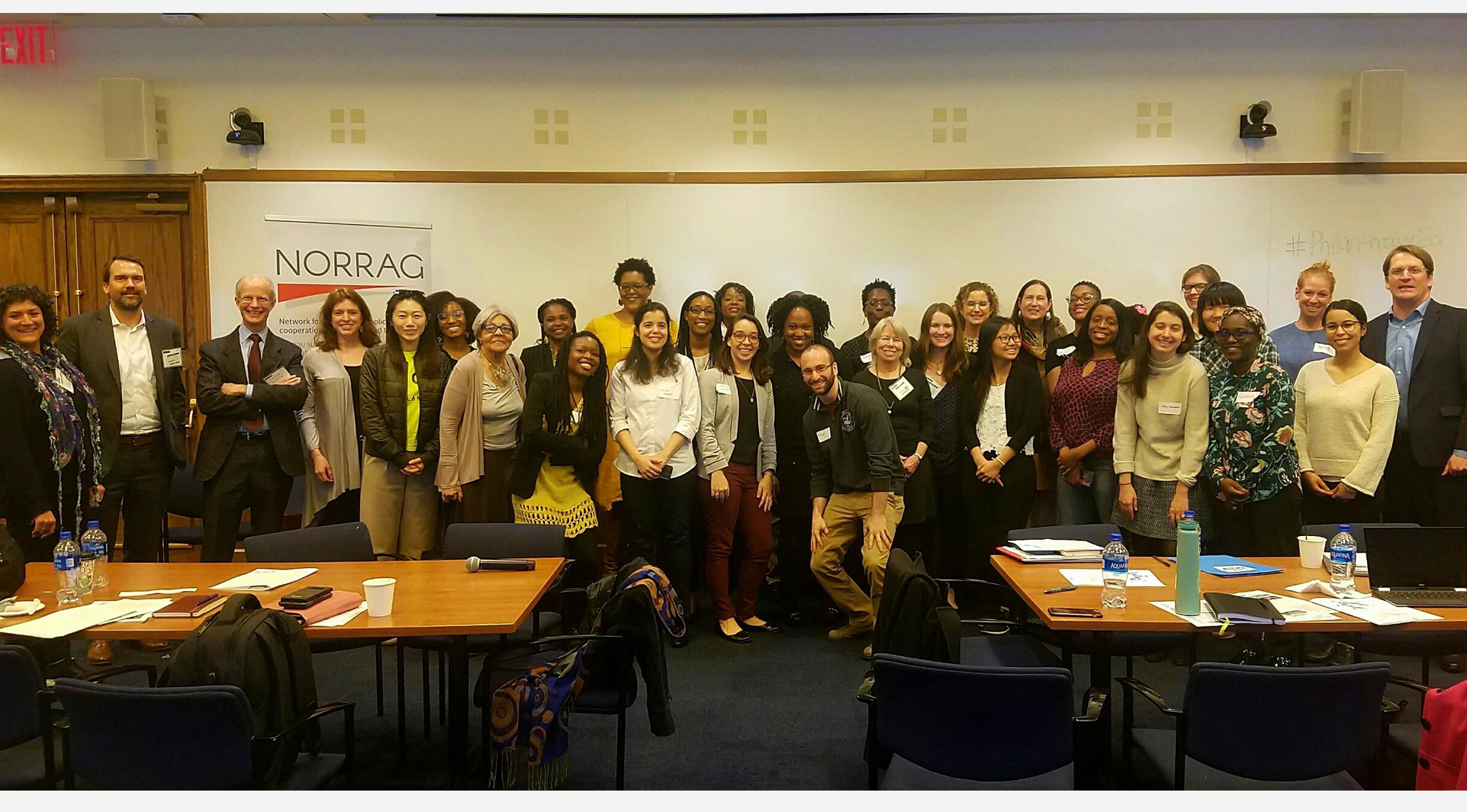Event Report - Investing in Education in Africa: Diverse Perspectives on Innovative Financing
On Thursday, April 9, 2019, the Center for African Education, in collaboration with NORRAG, Tri-State Area Africa Funders, and the Tamer Center for Social Enterprise at Columbia Business School organized the conference “Investing in Education in Africa: Diverse Perspectives on Innovative Financing” on education investing in Africa as part of the NORRAG Philanthropy in Education series. The conference sought to explore how new funding mechanisms and philanthropy can compensate for funding gaps and support the most vulnerable students in equitable ways.
The event was introduced by Dr. S. Garnett Russell, Assistant Professor of International and Comparative Education and Director of the George Clement Bond Center for African Education (CAE) and Katrina Webster, a graduate assistant of the CAE who skillfully orchestrated the event with input from Dr. Gita Steiner-Khamsi, Executive Director of NORRAG. The CAE’s mission supports research and teaching about education in Africa and the African diaspora with a particular focus on promoting educational equity.
The keynote speaker, Dr. Aleesha Taylor, discussed the topic from a funder’s perspective through her work at the Open Society Foundations. She has worked with governments, nonprofits, international networks and the private sector to transform crises and critical turning points into opportunities for greater impact. She is the founder and principal of Herald Advisors, a strategic advisory firm that helps clients shift systems and resources to address their challenges and better serve the socially and economically disadvantaged. As a former deputy director at the Open Society Foundations, Aleesha has a decade of experience in philanthropy. Aleesha has been essential to the exploration and implementation of innovative partnerships and funding arrangements in the education sector. In her keynote address, Innovative Financing for Education in Africa: Exploring Models, Connecting Actors and Fostering Conversations for Impact, Aleesha provided an overview of efforts to enable innovative financing to attract funds and increase impact and equity in the education sector over the past decade. As the field of education and development in general seek to achieve the inclusive goals of SDG 4, there is an urgent need for collaboration and understanding among civil society and experts in finance, education and development. Aleesha reflected on her tenure at the Open Society Foundations and discussed the current innovations and challenges facing the field of education and the practice of philanthropy.
The panel that followed explored different innovative financing mechanisms and their impact on education and development in Africa. Dr. Fabrice Jaumont, Senior Fellow at Fondation Maison des Sciences de l’Homme in Paris, moderated a panel which included Dr. Marina Avelar, Research Associate, NORRAG; Amini Kajunju, Executive Director, IUGB Foundation; and Barbara Bylenga, Founder and Executive Director, SHE-CAN. The panelists shared insights based on their own diverse experiences working in philanthropy and development in Africa. As the rationale for innovative financing is to encourage novel approaches and initiatives beyond traditional methods to generate sustainable funding for education, the panelists discussed what innovative financing mechanisms they used in their own work or organizations. They also explored how education financing may vary in Francophone Africa and Anglophone Africa and what insights we could draw from these differences. Finally, they talked about the role of the African diaspora and how students from the continent can become a more central voice in influencing educational development funding.
The panelists were invited to each join a table for roundtable discussions, and the audience was asked to consider the central question and discuss in depth: What are the barriers to closing the education financing gap? How can we use what was discussed today to ensure that innovative financing guarantees equitable outcomes? This collaborative format helped connect different actors and foster conversation among students, academics, practitioners and funders on the lessons learned, challenges, successes and recommendations for the future of innovative finance in education. Each table was then invited to share what they discussed and a key takeaway from the discussions was the importance of including local communities in decision-making.
The conference was funded by Teachers College Vice President’s Diversity and Community Initiatives Grant Fund and NORRAG, a global membership-based network for international policies and cooperation in education and training directed by Dr. Gita Steiner-Khamsi.
Here is the final program: Investing in Education in Africa Program
Pictures of the Event

Panelists at the discussion on “Investing in Education in Africa: Diverse Perspectives on Innovative Financing.”

Pictured: Professor S. Garnett Russell from Teachers College, Columbia University
This summary was written with input from an original Blog post by Fabrice Jaumont.

